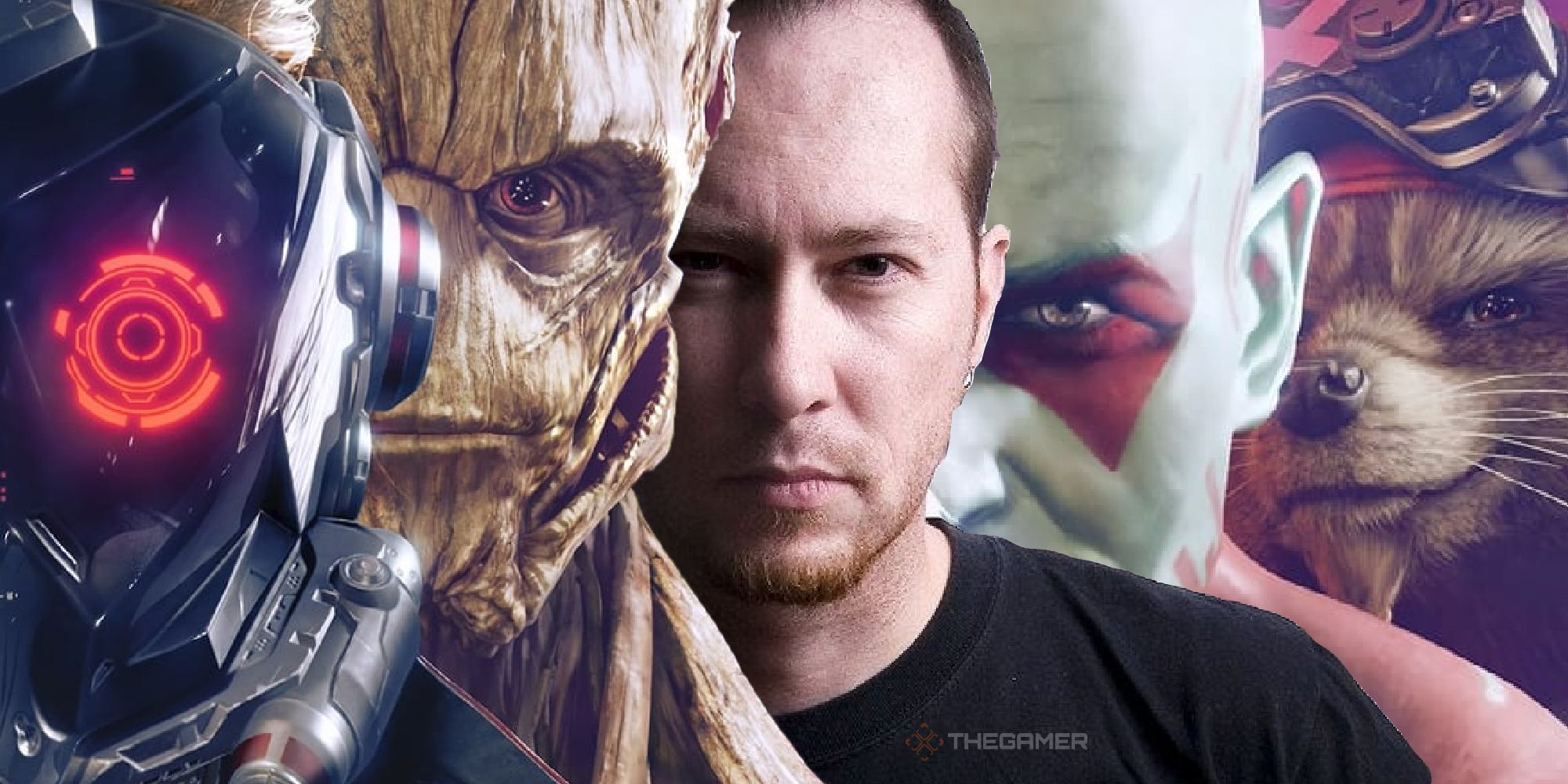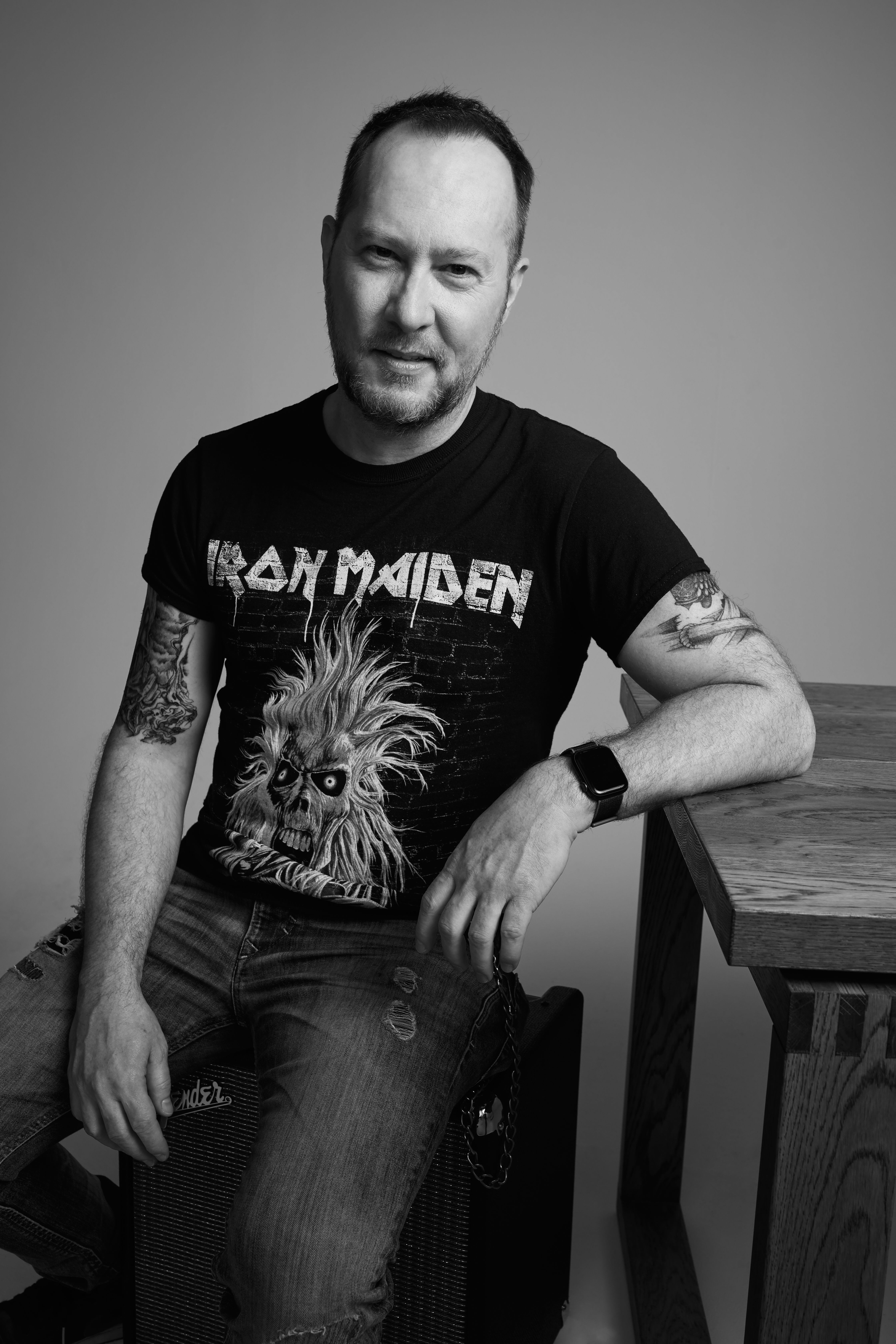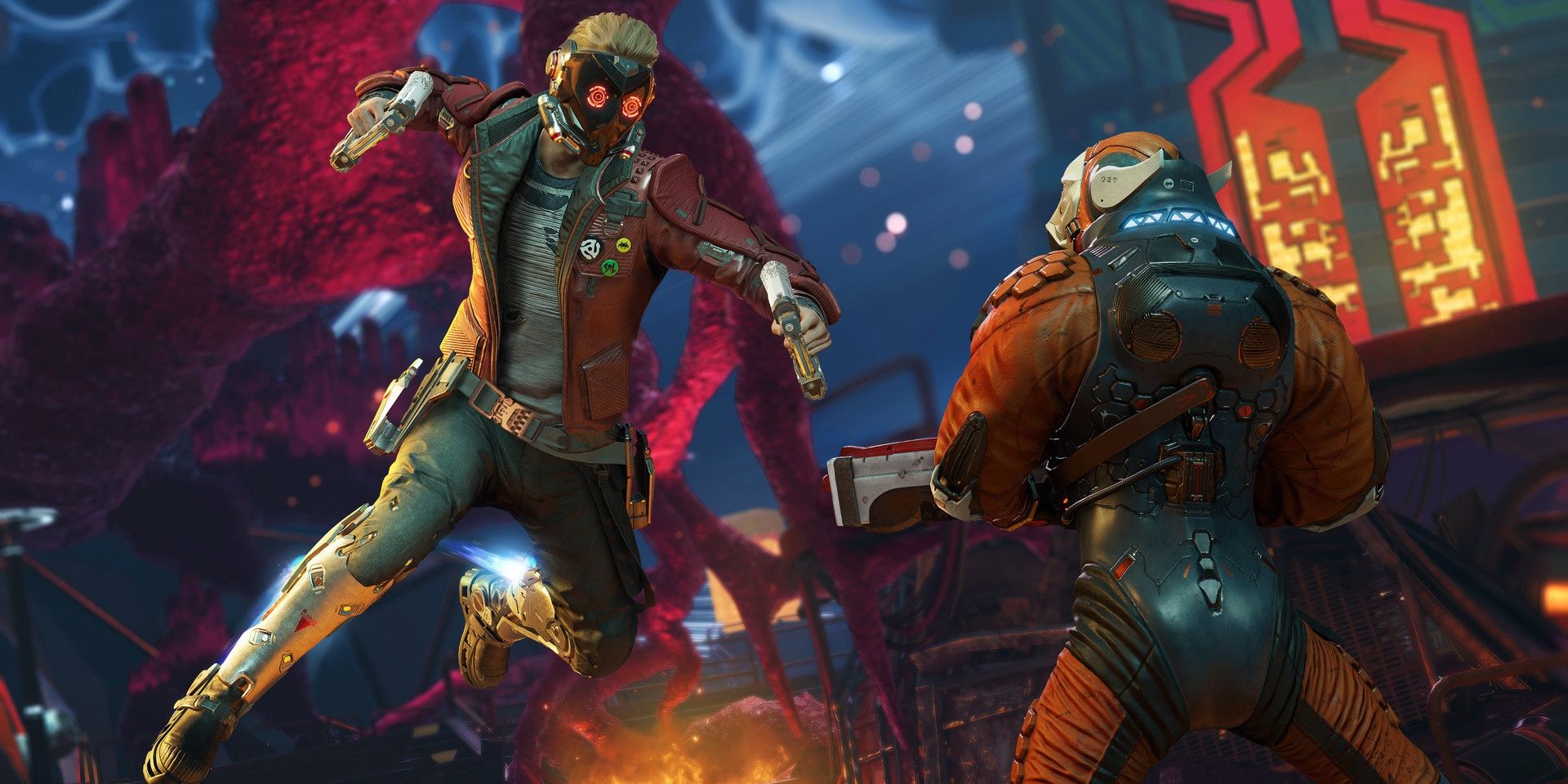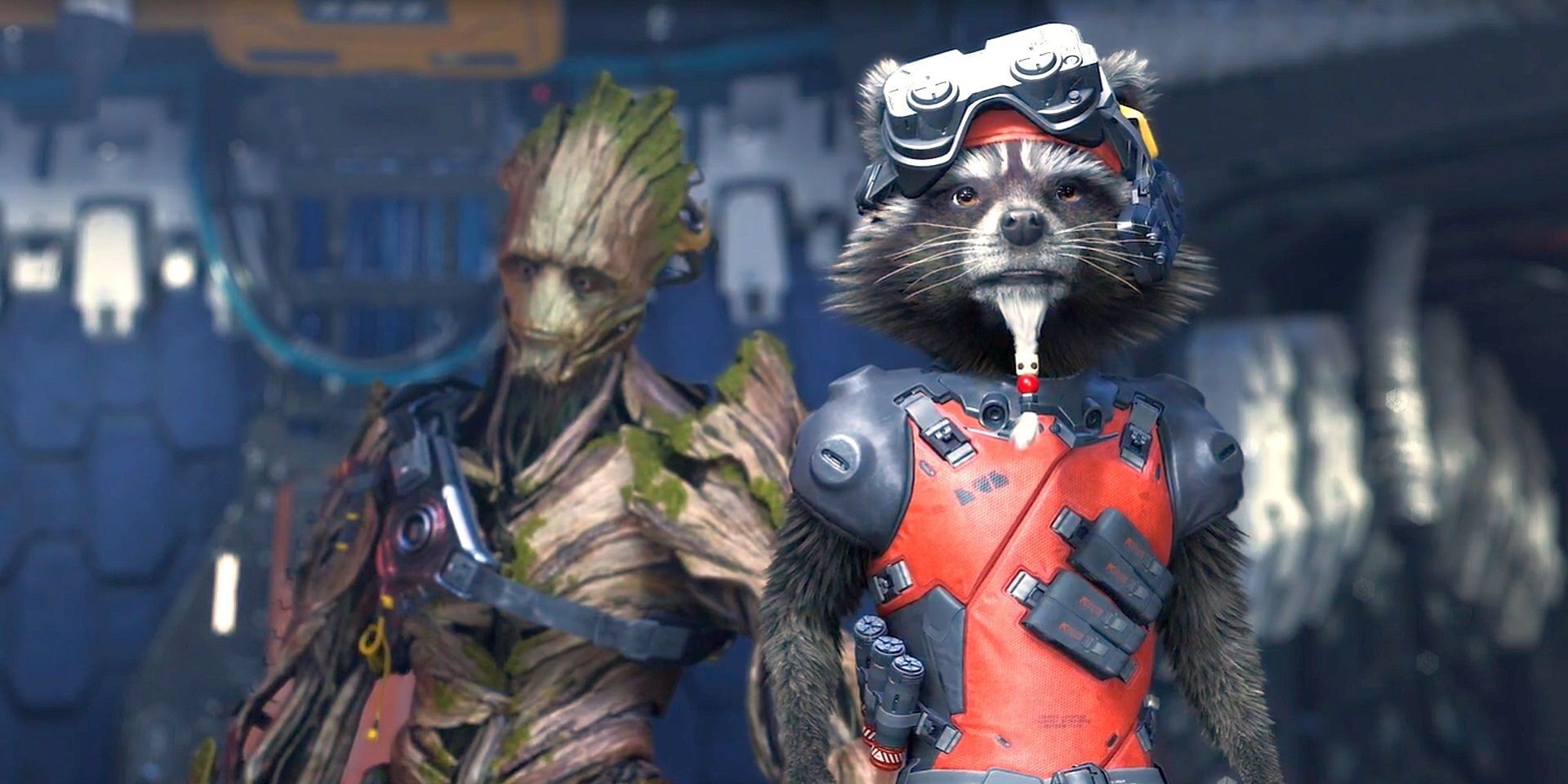There are many ways to implement a conversation in video games, but most play out like this: everyone takes their turn, and your character gets theirs when the time is right. NPCs patiently wait for your response, and your opinion is the only one that matters. This would never have worked with a band of weirdos like the Guardians of the Galaxy.
If you watch the first few minutes of the gameplay trailer revealed in June (above), you can see developer Eidos-Montreal has a different approach. The ragtag group of mercs are arguing about how to approach Lady Hellbender, talking over each other and debating their points. If you’re an introvert, it probably feels like a hailstorm. As Star-Lord, you get the opportunity to interject, but you only have a few seconds to fire your reply off before your opinion is drowned out by the other strong personalities in the group. As the “so-called” leader of the Guardians, your opinion might hold more sway, but everyone has their own agency.
When the trailer initially launched, the first comparison that sprung to mind was Mass Effect - the choice and consequence, the spaceship that ferries you between missions, and the squad-based gunplay - but Guardians of the Galaxy has other inspirations. One is Eidos-Montreal’s own Deus Ex games, and another is an indie game about a camping trip gone wrong.
“To be honest, I haven’t played the last [Mass Effect] yet, and I played the original trilogy a long time ago,” senior creative director Jean-François Dugas explains. “So, our game may sport similarities I am not aware of. Our inspirations were obviously found in the Deus Ex series, but another game that had a huge impact on us was Oxenfree. Although our game is very different, it managed to create a beautiful experience in which many characters constantly interact together in a natural fashion throughout the adventure. It truly helped us believe it was possible to make several characters on-screen constantly feel alive. We also looked at best-in-class action-adventure games such as The Last of Us.”
Oxenfree certainly isn’t the first game that comes to mind when looking at Guardians, but it’s hard to disagree when you go back and watch the trailers. The pace of conversations suits this gaggle of misfits as well as the licensed ‘80s soundtrack. As for the Deus Ex influences, you won’t be crawling around through air vents, but Eidos-Montreal hopes to deliver another world that feels like a place, rather than a set of levels.
“Marvel’s Guardians of the Galaxy is obviously a different game from our past projects,” Dugas says. “That being said, environmental storytelling is still an important aspect for us. It is, however, explored differently than in Deus Ex - for example, with a lower level of granularity - but our goal is always to immerse the players in the worlds we create for them. Choice and consequence are a big part of what we explore in Guardians of the Galaxy. Although the adventure is the same thrill for [everyone], the way it plays out varies from player to player. Some choices lead to light consequences, while others lead to impactful ones. In the end, players will assume the role of the ‘so-called’ leader. And we want it to mean something.”
Star-Lord is the only playable character here, and that’s because taking on the leadership role in a dysfunctional group is the heart of the story. Eidos-Montreal wanted to capture the essence of managing a team of colourful personalities, both in battle and in conversations. Groot, Drax, Rocket, and Gamora won’t always agree with your calls - hell, they won’t always agree with each other - but you have to finesse every situation to try keep them happy. While they won’t abandon you if you don’t manage their mood, they might refuse to do it your way when you need them for something down the line.
“Star-Lord, Gamora, Rocket, Drax, and Groot ooze with personality,” Dugas explains. “We wanted players to be at the center stage of that dynamic. Therefore, the question became, ‘What if players are one of the Guardians? What if we put them in the shoes of the ‘so-called’ leader and let them make decisions, or adapt to the group’s unexpected behaviors?’ This unique take allowed us to create an adventure where you constantly feel surrounded by the Guardians. Not only are they around you and bantering, you can also summon their abilities in combat, and in other game moments. They are constantly alive, acting their part in all aspects of the game. As a player, you truly feel that you are with them.
“We treat [them] as independent individuals. They will make decisions on their own at times, forcing you to adapt to developing situations. The choices you make may impact a part of the narrative and gameplay. For example, whether you sell Groot or Rocket, there will always be a Guardian to disagree with the choice. But a decision is made and the team accepts it. However, selling Groot turns into a series of events that will greatly vary from selling Rocket. Another example, throwing Rocket over the chasm pisses him off. It doesn’t make him leave the team, but he won’t be caught again. If you encounter a similar scenario down the line, it might force you to find a different solution to your problem.”
According to Dugas, choices extend beyond the binary, too. Sometimes you might have to choose between selling Groot or selling Rocket, but some scenarios have more than two outcomes.
“Choices in the game take many shapes and forms,” Dugas says. “Sometimes it is about convincing someone to help you, while at other times, it is about reacting to an unpredictable reaction from one of your Guardians. It is not about the number of choices for us. If a given scenario requires more than two choices, there will be more. It is all about what makes sense to deliver on a story-driven adventure that constantly motivates you to move forward. Granted, it is the same big adventure for everyone, but the way it’ll be experienced will vary from player to player. Being Star-Lord is truly empowering and engaging.”
It’s not just about big conversations, either. There are dynamic, Oxenfree-style chats as you explore the world, which you’re free to chip into, and there’s as much battle banter as you’d expect from watching the Marvel movies. In combat, you might only ever control Star-Lord himself, but you can fire off your squad’s unique abilities whenever they’re charged. Otherwise, they’ll do their own thing while fighting. Play well and you’ll fill a Momentum meter, which itself fills the Huddle Gauge. Once full, you can call a team meeting and deliver a rousing speech to buff your companions, though you’re not guaranteed success.
“The Guardians have unique abilities that you can use during fights,” Dugas says. “Think of them as additional superpowers for your playable character. Rocket is your area of effect guy. Groot is the support and defensive character. Gamora is the heavy damage dealer. And Drax is the tank, staggering enemies. There are some overlaps between characters, allowing for more tactical combinations, more combat flexibility. And when you combine it to fight the variety of enemies you will encounter, all sporting different strengths and weaknesses, it will add to the mix significantly, forcing you to adapt accordingly. The beauty of this system is that you can try to brute force your way through enemies. However, if you are creative, mixing and matching Guardians’ abilities with Peter’s in optimal ways, you will defeat enemies more efficiently.
“This approach will also boost your Momentum meter. The more you manage to boost the meter, the faster you will fill your Huddle gauge. When ready, it is up to you when to use the Huddle - like what can be seen in American football games, Peter huddles up with his team. He needs to deliver a quick team talk that matches best the feedback given by the Guardians. Choosing correctly will boost all five characters with invincibility, and close to no cool-down on all abilities. It is very satisfying and can make a great difference when used wisely. If Peter fails at giving the right speech, the Guardians race back to the battlefield confused and with no advantages except for Peter; he still gets the on-fire bonuses. The logic is that even when he fails, he still believes he delivered a rousing speech - his magic always works on him either way. And when you think you have seen it all, and master all the components of combat, there is still a big adventure to discover with a lot of twists and turns. Until the end. Beyond the credits.”
Guardians of the Galaxy knows the story it wants to tell, but there’s still plenty of room for you to play it again and have a different experience. You might end up in the same place, but the path to get there, like Groot, has plenty of branches.
“It is a story-driven adventure with a big emphasis on the journey with the Guardians,” Dugas says. “We toyed with the idea of side quests and decided against them early on. We really wanted to focus on delivering the ‘so-called’ leader fantasy within a great story that is worth seeing through [to] the end. It truly pays off on many levels.”
Marvel’s Guardians of the Galaxy game launches for PS5, PS4, Xbox Series S|X, Xbox One, PC, and Nintendo Switch through cloud streaming on October 26.


.jpg)



.jpg)